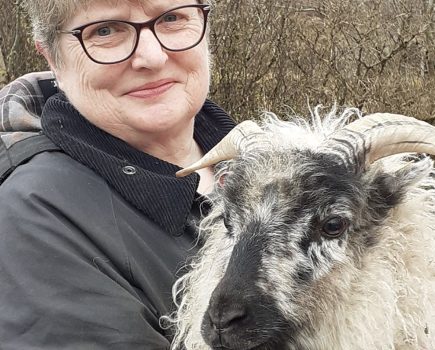Oct 17, 2012: Think before you buy! Smallholder and author Liz Shankland gives advice on buying equipment or machinery for your smallholding
No two smallholdings are the same, and no two smallholders will have the same ideas or ambitions, so it’s impossible to give an exhaustive list of what equipment you might need to manage your land. Whatever the various features of the land and your personal requirements, it’s safe to assume that you will need to keep grass, scrub, and hedges in check and, possibly, cultivate the ground. If you’re the kind of person who’s into ‘big boys’ toys’, you might be tempted to rush out and buy a whole host of expensive kit in your excitement – including the ultimate smallholder status symbol, the tractor. However, as with any purchase, it pays not to rush into things. SOME KEY TIPS• Think before you make a costly purchase. You may find that it’s cheaper to pay someone to carry out an annual chore rather than splash out on a piece of seasonal machinery that may be used for a few days and then spend the rest of the year in the barn. • Consider a tool or machinery swap. If your neighbour has something you need and he or she could do with borrowing something of yours, you might be able to come to an agreement. • Machinery rings – organisations set up to help unite those who have with those who need – are becoming more and more widespread. The Machinery Ring of Association of England and Wales supports 10 machinery rings in operation across England and Wales. It acts as a kind of ‘broker’, helping members hire out their equipment and skills to other members who need them. Ring membership is open to farmers, contractors, self-employed workers, mechanics, agricultural advisors, hire firms, and other businesses involved in farming activities. SAFETY FIRSTIt should go without saying that safety is of paramount importance when operating machinery of any kind. Unfortunately, as there are no restrictions on who can buy or use the kind of potentially-lethal equipment commonly found on a farm, and no requirements for proper training to be carried out, there are numerous serious accidents – and even deaths – recorded year after year. Before you even contemplate handling an unfamiliar bit of kit – whether a powered tools or a vehicle – please get some formal instruction first. It will definitely be money well spent. Contact your nearest agricultural college or a farming union for advice on locating a course, and also take a look at the Health and Safety Executive’s website for lots of useful information. Don’t forget to read any instruction manuals and to wear the correct personal protective equipment (PPE) before you try out any new purchase. Ensure that all equipment is kept well maintained – not just for reasons of efficiency, but also because a faulty machine can be a dangerous one. * Reproduced from The Haynes Smallholding Manual by Country Smallholding writer Liz Shankland. Available now on Amazon at £14.29.







